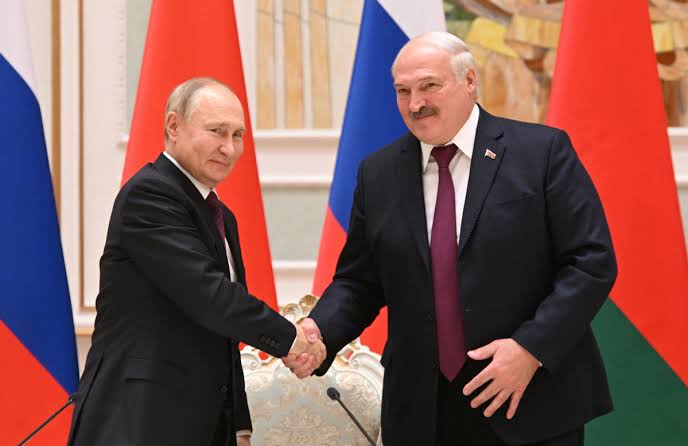
During a national address on Friday, March 31, Belarusian President Alexander Lukashenko announced that he had intensified talks with Russian President Vladimir Putin about deploying both tactical and strategic nuclear weapons in Belarus. This comes after Putin’s announcement last week that Moscow would complete the construction of a storage facility for tactical nuclear weapons in Belarus by the beginning of July.
While tactical nuclear warheads are designed for use in a limited battlefield, strategic nuclear warheads are designed to destroy entire cities. At present, Russia has not announced any plans to send strategic nuclear weapons to Belarus.
Lukashenko claimed that Belarus needed these weapons because Ukraine’s Western allies were planning a coup against him. He baselessly accused Western countries of “preparing to invade” Belarus from Poland and “destroy” it.
During his speech, Lukashenko said, “If necessary, Putin and I will decide and introduce strategic nuclear weapons here. And they must understand this… We will stop at nothing, protecting our countries, our states and their peoples.” Putin and Lukashenko are scheduled to meet next week.
Belarus is one of Russia’s few allies in its war on Ukraine. While the country’s military isn’t directly involved in the fighting, Belarus helped Russia launch its invasion of Ukraine in February 2022, allowing the Kremlin’s troops to enter the country from its territory.
Putin said last week that he would not transfer control of the tactical nuclear weapons to Lukashenko, likening the move to Washington’s practice of stationing nuclear weapons in Europe to keep host countries, like Germany, from breaking their commitments as non-nuclear powers.
Lukashenko accused Poland and its “zealous” Western neighbors of building up the “formation of certain regiments, banners, legions” for a “subsequent coup in Belarus.” He called for the freezing of “hostilities” in Ukraine, stating that “it is necessary to stop hostilities and declare a truce that prohibits both sides from moving groups of troops and from transferring weapons, ammunition, manpower, and equipment. All stopped, frozen.”































